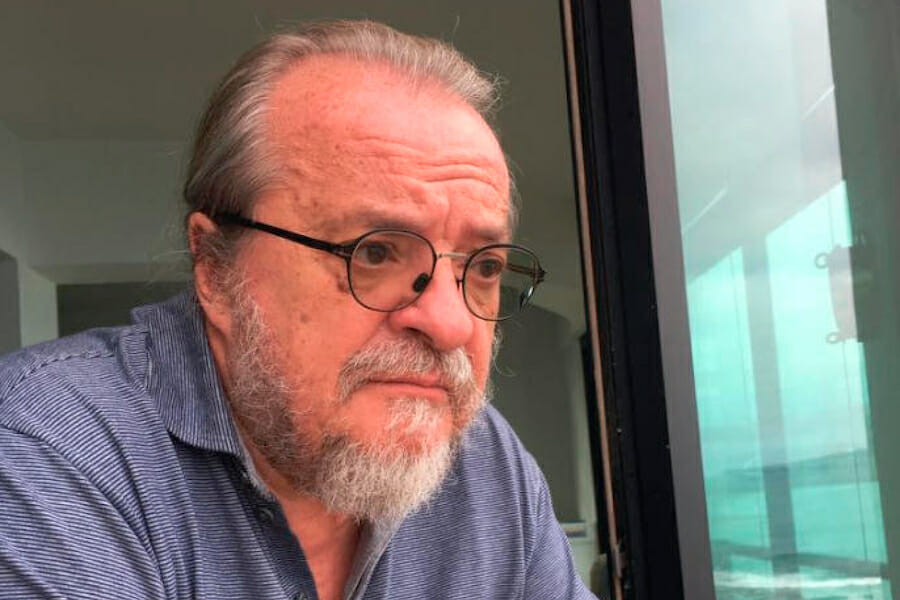
Treatment of Detainees in Spain ‘Not in Line with European Law’
In its national human rights report presented at the UN earlier this month, Spain claimed that its legislation concerning detainees’ rights has been in line with European law since as far back as 2015.
The relevant legislation, “Organic Act No. 5/2015,” refers to the right of access to materials about the case and the right of a suspect or accused person to be informed of the maximum period for which he or she may be deprived of liberty before being brought before a judicial authority.
The Act also cites the procedure “by which he or she may challenge the lawfulness of his or her detention.”
However, Human Rights Without Frontiers (HRWF), a leading Brussels-based NGO, argues that prisoners in Spain have, contrary to what the Spanish authorities claim, not been treated according to European law since 2015.
Furthermore, HRWF backs up its assertion with hard evidence.
An emblematic case in point, it says, is the abuse suffered by the Kokorev family. Vladimir Kokorev (aged 61 in 2015), a reputed businessman active for decades in Africa, his wife Julia (63) and their son Igor (33).
All three were arrested in September 2015 on vaguely worded suspicion of money laundering which has since then never been corroborated with any evidence. Moreover, there had never previously been any criminal record against any of them.
So-called implementation of “Organic Act No. 5/2015” has not been in line with EU law in their case, says HRWF Director Willy Fautré.
Igor Kokorev’s pretrial imprisonment court order is dated 27 October 2015, while his parents’ was issued on 23 November 2015. The Organic Act No. 5/2015 modifying the criminal procedure for the purpose of implementing the “European Right to Information Directive 2012/13/EU” entered into force on 28 October 2015.
However, in practice, HRWF says the three were treated in exactly the same manner. Their imprisonment court orders were redacted, leaving out only standard copy-pasted legalistic formulations that abstractly justify pretrial imprisonment, with a single reference to “money laundering” as the sole description of the crime under investigation.
Their counsel appealed all the way to the Spanish Constitutional Court, which took two years (until March 2017) to refuse out of hand to examine their appeals on the basis of “manifest absence of an infringement on a fundamental right.”
According to HRWF, “This clearly shows that Organic Law 5/2015 had not, in fact, implemented the right of access mandated by the EU directive or did so in a very limited and defective manner.”
HRWF, a widely respected rights group, says they were treated as a single entity, the “Kokorev family,” no distinction being made between the three individuals, suggesting the presumption of guilt by association.
The family was kept separated, first in different prisons and then in different cell blocks within the same prison.
Vladimir, his wife, and their son were never accused of using violence or inciting violence. However, they were all assigned to the harshest detention conditions, known as FIES – 5, a status reserved for terrorists or terrorism suspects, sexual offenders, and other violent criminals.
Their attorneys were unsuccessful in getting their release on bail, their personal circumstances not being taken into consideration by the authorities, including Vladimir’s severe health deterioration.
He struggled in prison with his health, suffering from several heart conditions, hypertension, and diabetes but failed to get appropriate medical treatment. In the hospital, he remained handcuffed and the armed authorities refused to remove them, even when it was requested by a nurse.
Igor, meanwhile, became a father whilst in prison but was refused bail. As a result of his absence, his partner was diagnosed with acute depression after she gave birth.
Even after substantial time had elapsed from their arrest and the Spanish authorities had become aware that no trial could be held within many years (certainly not within the maximum terms for pretrial imprisonment under Spanish law), the pretrial detention of the whole family continued.
After their arrest proceedings remained absolutely secret for some 18 months under the secreto de sumario regime during which their counsel was denied access to their files and refused even basic information on the reasons for their arrest, including a description of the offence and evidence against them.
Once secrecy was lifted and access to evidence was slowly and reluctantly granted, Kokorevs’ counsel denounced to the Court a chain of manipulations and fabrications of incriminating material by the police, which had been used to keep the family in prison.
Fautre related to me, “The Kokorev case offers unique evidence that the EU directive on the right to information in criminal proceedings, which should prevent the secreto de sumario from being used in the context of pretrial detention, has not been properly implemented by Spain.”
Moreover, the abuse by the Spanish judiciary of lengthy pretrial detention and secrecy to soften (or “soak,” in police jargon), suspects who are unwilling to admit guilt has been denounced by civil society actors in the recent Universal Periodic Review of Spain by the UN. A group of Spanish jurists explained in their submission to the Human Rights Council that this tendency to abuse pretrial detention springs from the inquisitorial nature of the criminal investigation in Spain, where magistrates are charged with uncovering the truth to the neglect of preserving the rights of the suspects.
According to these jurists, this is made worse by the rules governing compensation for unlawful detention, which establish that compensation is only due if the accused is acquitted at a trial.
This means that any periods of unlawful or unjustified pretrial detention are cured by an eventual conviction, thus providing an incentive to the investigating magistrate to continue investigating suspects until a punishable offence can be found, or they are willing to reach a deal with the prosecution on the basis of time served to be allowed to move on with their lives.

